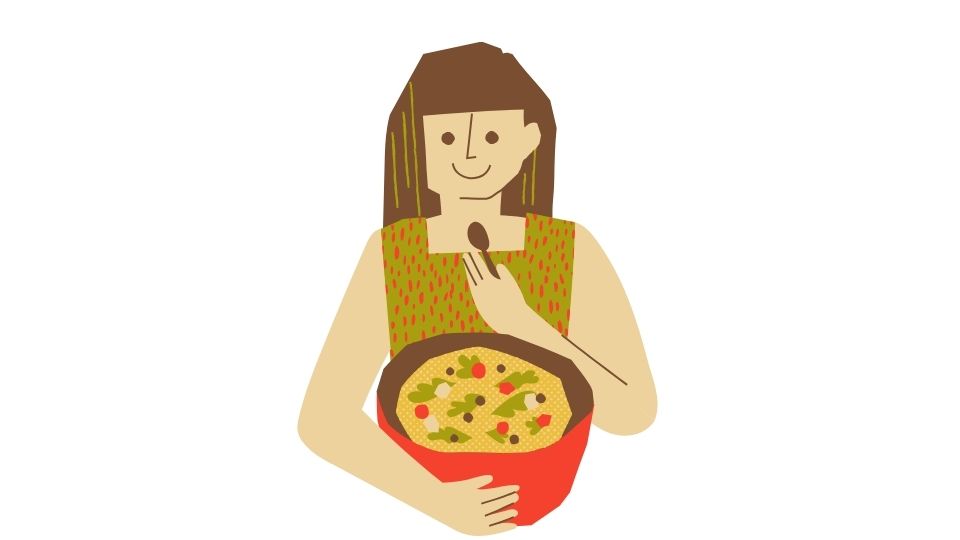Ever catch yourself standing in front of the fridge at 11 PM, not because you’re hungry, but because you had a crappy day at work?
That’s emotional eating in a nutshell – using food to cope with feelings instead of addressing actual hunger.
If this sounds familiar, you’re not alone. Emotional eating affects a ton of us, but here’s the good news: tracking what you eat can be a game-changer for breaking this cycle.
Let’s dive into how meal tracking can help you spot those emotional eating patterns and actually do something about them.

Why We Emotionally Eat (And How to Stop)
Emotional eating isn’t just about lacking willpower – it’s about using food as a coping mechanism when you’re stressed, sad, bored, or anxious.
And unfortunately, we rarely reach for broccoli when we’re emotionally eating – it’s usually the ice cream, chips, or pizza that call our name.
The tricky part? Emotional hunger feels different from physical hunger, but most of us have never learned how to tell them apart.
Physical vs. Emotional Hunger: Spot the Difference

Physical hunger:
- Builds gradually (your stomach starts growling)
- Can be satisfied with pretty much any food
- Stops when you’re full
- Doesn’t make you feel guilty afterward
Emotional hunger:
- Hits you like a truck (MUST EAT NOW)
- Makes you crave very specific comfort foods
- Often leads to eating more than usual
- Leaves you feeling guilty or ashamed
Recognizing these differences is step one in breaking the emotional eating cycle. And that’s where meal tracking comes in clutch.
How Tracking Your Meals Changes Everything
Meal tracking is exactly what it sounds like – recording what you eat throughout the day. But it’s not just about counting calories – it’s about understanding your relationship with food.
The Benefits Are Huge:
Awareness – You can’t change what you don’t notice. Tracking makes your eating patterns visible.
Trigger identification – When you track not just what you eat but also how you feel, patterns emerge. Maybe you always demolish a bag of chips after tough meetings.
Better self-regulation – Just knowing you’ll be tracking your food makes you think twice before emotional eating.
Nutritional knowledge – You start to understand what’s actually in your food, which helps make better choices.
Research shows that people who track their meals consistently lose more weight and keep it off longer than those who don’t. But the benefits go way beyond weight – it’s about building a healthier relationship with food.
Meal Tracking Apps Make It Easy

Let’s be real – nobody wants to carry around a notebook to write down everything they eat. That’s why meal tracking apps are so helpful.
The best apps let you:
- Easily log meals with minimal friction
- Track emotions alongside food
- See patterns in your eating habits
- Access nutritional information
Some people get intimidated by meal tracking because they think it has to be perfect. It doesn’t! Even tracking 80% of what you eat can give you valuable insights.
And research from Kaiser Permanente shows that the more consistently you track, the more benefits you’ll see.
The Mindful Eating Connection
Meal tracking works even better when combined with mindful eating – paying close attention to the experience of eating rather than scarfing down food while scrolling Instagram.
Try These Mindful Eating Tactics:
Slow down – Put your fork down between bites. Chew thoroughly.
Use all your senses – Notice the smell, taste, and texture of your food.
Ditch distractions – Turn off the TV. Put your phone away. Just eat.
Check in with your hunger – Before, during, and after eating, ask yourself: “How hungry am I on a scale of 1-10?”
When researchers at Indiana State University studied mindful eating, they found it significantly reduced binge eating episodes and emotional eating behaviors.
Your Emotional Eating Action Plan

Ready to tackle emotional eating head-on? Here’s your game plan:
Start tracking – Begin logging your meals and emotions, even if imperfectly.
Identify your triggers – Look for patterns in when emotional eating happens.
Create alternative coping strategies – When emotions hit, have options ready that aren’t food (walk, call a friend, meditate).
Practice self-compassion – If you slip up (and you will), don’t beat yourself up. Just get back on track.
Consider professional support – If emotional eating is seriously impacting your life, a therapist who specializes in eating behaviors can be incredibly helpful.
One study in the Journal of Obesity found that addressing the psychological aspects of eating was more effective for long-term weight management than focusing on diet alone.
The Bottom Line

Emotional eating isn’t a character flaw – it’s a learned behavior that you can unlearn. Meal tracking gives you the data and awareness you need to start making changes, while mindful eating helps you build a healthier relationship with food.
Remember, the goal isn’t perfect eating – it’s understanding your patterns so you can make conscious choices rather than letting emotions drive your eating.
And hey, if you slip up and find yourself elbow-deep in a pint of ice cream after a rough day, don’t sweat it. Tomorrow’s a new day with new choices. The simple act of tracking helps build awareness, and awareness is where lasting change begins.




Leave a Reply